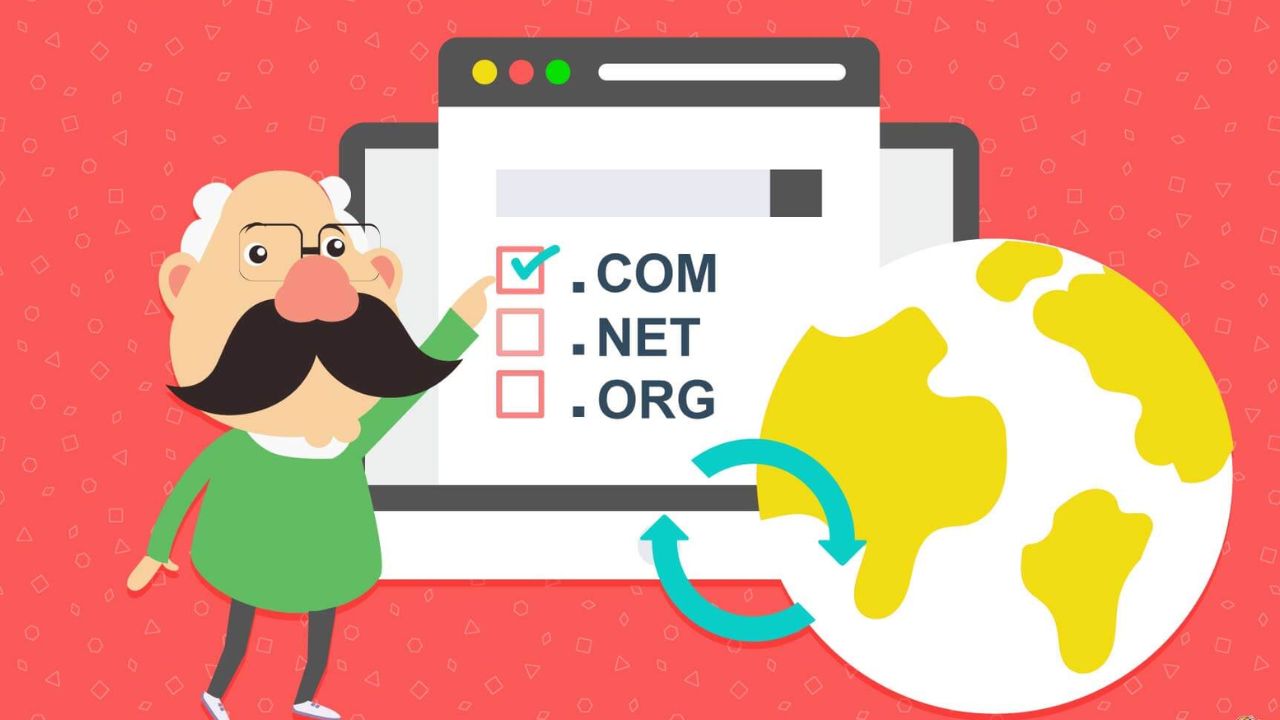How does web hosting function?

Strong 8k brings an ultra-HD IPTV experience to your living room and your pocket.
Web hosting makes your website's content available online. When you buy a hosting plan, you rent space on a real server for website files and data. Web hosting providers provide the technology and resources needed to run your website securely. They maintain the server, implement hosting security measures, and transport texts, photographs, and other material to visitors' browsers. Web hosting, how it works, and its types are explained in this article.
What does "web hosting" mean?
The term "web hosting" refers to the provision of a safe location for the storage of content that is accessible online. In order for a website to function properly, it is necessary to save all of its components, including the text, images, and videos. It would be impossible for any of us to access content on the internet on a constant basis if we did not have a reliable digital repository.
Hosting is therefore one of the most essential components of building an online presence for any individual or organization, whether it be a large corporation or a personal account of a smaller scale. Web hosting gives users the ability to store content remotely, which lowers the expenses associated with local storage and the physical footprint that is connected with it.
Additionally, it simplifies the process of constructing a web presence that is truly long-lasting, and it comes with built-in benefits such as backups for support and security. The majority of web hosting is done through cloud-based third-party companies; however, some web hosting is done locally using personal computers or servers. You should be able to locate a large variety of free and paid web hosting service options to choose from after you begin your search for a hosting service.
How does the process of web hosting work?
A physical computer that is constantly operating in order to make your website accessible to users at all times is referred to as the server that hosts your website. When you purchase servers for web hosting, you will have the ability to store all of the data associated with your website on the servers that are provided by your provider.
The web host's server will send all of the files that are required to load your website as soon as a user inserts your domain name into the address bar of their browser. It is possible to host a website on your own, but doing so requires a certain level of technological expertise. Building and configuring a web server from the ground up is what is meant by the term "self-hosting." This includes the hardware, software, infrastructure, and equipment.
You will also be responsible for all of the ongoing maintenance that needs to be done. When you use a web hosting service provider, they will ensure that your website operates at its highest possible level and with improved security standards. Furthermore, it simplifies the numerous complicated parts of hosting a website, ranging from the installation of software to the provision of various forms of technical assistance.
Self-hosted website:
The price of creating your own web servers with personal computer software may be more than those of a dedicated facility and provider, however, there are solutions for you to establish your own web servers. Because of this, the majority of customers rely on a third-party provider that can guarantee particular features and services around the clock throughout the entire day. Although it requires a large investment in both servers and labor, enterprise organizations may decide to host their own website in order to retain everything on site.
It makes perfect sense for major firms to do this. Website hosting via a third party, on the other hand, is a far more cost-effective option for businesses of a small to medium size. Continuous accessibility for users, increased protection against hackers, frequent maintenance, and technical help for you in the event that unforeseen problems arise are some of the benefits gained.
Types of web hosting include:
They do this in a variety of different ways, but third-party hosting services relieve the user of the responsibility of setting up and maintaining their website. In this brief discussion, we will examine some of the various forms of web hosting that are now accessible.
1. Shared hosting
Shared hosting services are a typical and cost-effective alternative that utilizes a single server system to manage several clients. Because of the trade-off that it entails, it is an excellent choice for situations in which your needs and budget are restricted. Considering that the server's resources are shared among a number of different users, there is a greater potential for interruption.
2. Virtual private server (VPS) hosting
Your files are stored in a dedicated location with dedicated resources when you use virtual private server (VPS) hosting, which is comparable to shared hosting. This approach eliminates the danger of sharing hardware with other clients or subscribers of your supplier, despite the fact that the cost is often greater on average.
3. Dedicated hosting
A dedicated server is provided, which eliminates the dangers associated with shared hosting in terms of both performance and security. It is also possible to acquire a large amount of functionality; however, this will result in an increase in the amount of regular administration and maintenance that is required, as well as an increase in expenditures.
4. Managed Hosting Services
However, you do not have access to the same administrative capabilities as you would with a dedicated server. You are responsible for managing content through FTP (File Transfer Protocol), which is the rule that networked computers follow when they "talk" to each other. Managed hosting removes the responsibility of security and maintenance of your provider.
5. Cloud Hosting
In order to cut costs and lessen the likelihood of visible service outages, cloud hosting is a relatively new solution that takes advantage of resource sharing and scale. It is possible that it is more affordable in comparison to other choices; but, before you commit to a plan, you should make sure that you have a thorough understanding of how the price structure works.
Despite the fact that these are the five solutions that are utilized the most frequently, there are different types of web hosting obtainable. These include home servers that you construct on your own without any assistance from anyone else. But just like with any other do-it-yourself technology job, you should be sure to conduct a lot of research before you start.
Why spend money on web hosting?
1. Control Panel
Website hosting control panels let you manage many parts of your account. A commercial host should have a control panel so you may make small maintenance changes without waiting for technical support. Email addresses, account passwords, and basic server configurations are managed under a ‘cPanel’ interface. Going through a technical support operator or paying extra for simple admin chores might be time-consuming.
2. Dependability (uptime)
It's important that both free and paid services are reliable, but you should only expect a paid hosting plan to be truly reliable. You'll probably want your website to be up and running 24 hours a day, seven days a week. A web hosting service with secure servers and network connections is the only way to make that happen. Look at how often a host has been up before you choose one.
It's possible to read reviews and look at the uptime promises they offer. When a website is hard to get to or often goes down, it loses users, customers, and sometimes even money. When someone sees your site and tries to access it but can't, they will quickly switch to a competitor's site. Visitors who come back often will also be very annoyed by slow access, as will you when you add new information.
3. Multi-Domain Hosting
Nowadays, domains are inexpensive, so it's hard to resist buying several. Extra hosting space is needed for extra domains. Hosting many domains from one account simplifies the procedure. Websites hosted on the same account are termed add-on domains. Most shared hosting services enable addon domains. Check their pricing beforehand.
4. Bandwidth and Traffic
Make sure you read and understand any limits on the speed you use, then choose a plan that works for you. You should get a plan that fits your needs if your site will have video, music, or other things that need a lot of bandwidth.
5. Tech support
Check your host's 24/7/365 expert support because things can go wrong at the worst time. When you push the S.O.S button, you want someone to save you and know the person on the other end has the technical skills to help you right away. Online reviews from real customers can help you understand this.
There will be non-urgent questions. You may wish to fix it yourself while learning your server settings. Can you learn more from the host's knowledge base or FAQs? Check availability whether you prefer phone chats or extensive manuals to solve problems yourself.
6. Cost
Most commercial hosts provide monthly and annual payment plans, with the latter being cheaper. You can convert to cheaper annual payments or move hosts fast if they don't meet your expectations after you're convinced they're stable. Last, renewals. If you like a bundle, check renewal prices. The sector often charges modest enrolment fees but significant renewal fees. Renewal charges are inescapable unless you want to move hosts every few years.
Conclusion-
It is simple to become overwhelmed while reviewing all of the available hosting solutions because there are so many to choose from. Switch gears and spend some time engaging with user reviews if you find that your eyes are beginning to glaze over when you are reading lists of features and examining pricing plans.
Reading through the experiences of other people before signing up is frequently really beneficial. However, after you have a thorough understanding of the fundamentals of web hosting, you should choose which format is most interesting to you: shared, dedicated, or else. In order to rapidly read through plan descriptions that are heavy on language, it is also a good idea to make a brief checklist of the most important characteristics.
Note: IndiBlogHub features both user-submitted and editorial content. We do not verify third-party contributions. Read our Disclaimer and Privacy Policyfor details.







